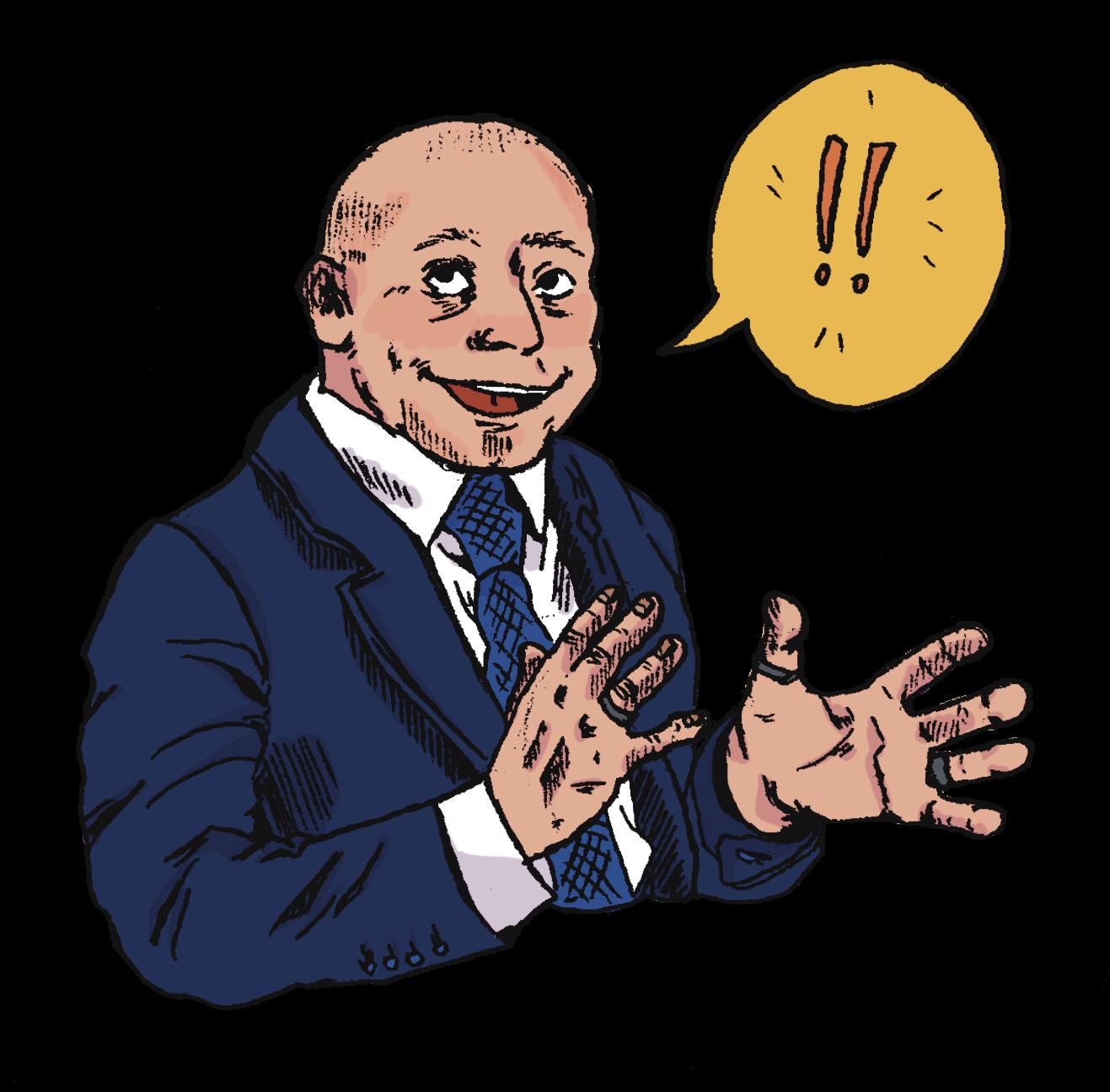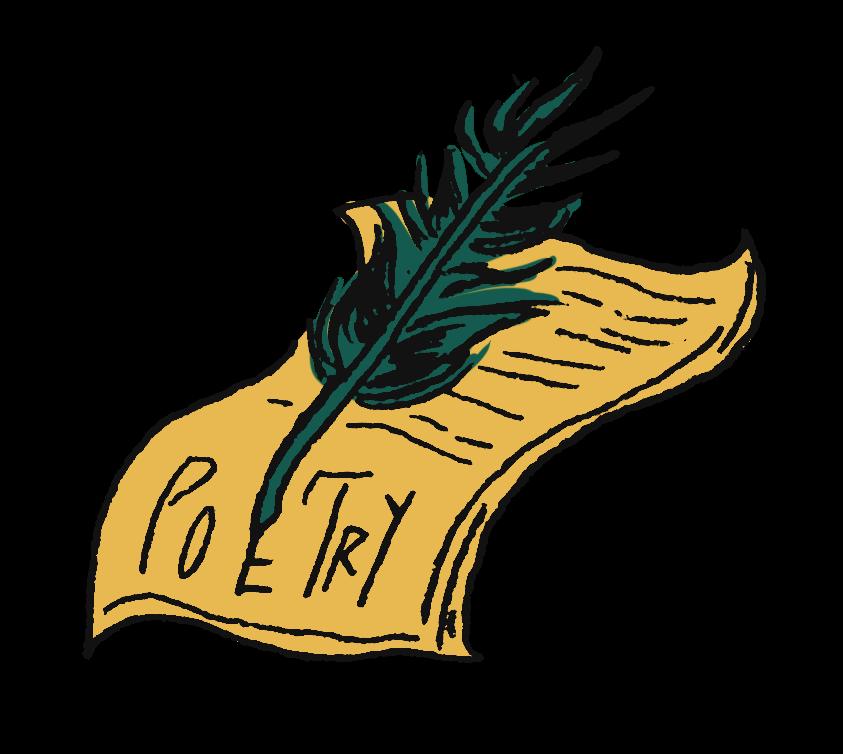
9 minute read
Extended interview with ex-rector Stephane Pallage
As promised, here goes the extended interview with Stephane Pallage, our rector at the time our shortened article was published.
“I love this place” was the very first sentence our current rector, Prof. Dr Stéphane Pallage said to us when we started the interview. And so do we, thought us, not yet knowing how much else he has with us in common. Cups of coffee on the table, we talked creativity, the importance of friends, housing, and a bit of campus history. Read the full interview below.
Advertisement
Our student magazine is a cultural endeavour. We are students, we like to study, but we also like to be creative; we think culture is equally as integral a part of our community as research and education. How do you see the role of culture at a university?
Academy and culture go hand in hand together. This is clear in my mind, and I enjoy doing both.! As a high school student in Belgium I started a theatre company. We would do everything by ourselves; I even wrote most of our plays.
After high school, in many moments of my life I have written poems and books. Some poems have been published, but the books usually tend to stay in the drawer (laughs). This year in November, however, I published my first book here, in Luxembourg. Creativity is very important for me.
I did my PhD studies at Carnegie Mellon University, in Pittsburgh. You might know the name Carnegie from the name of Carnegie Music Hall. That university was founded by Andrew Carnegie, an industrialist in Pittsburgh, which was very much an industrial site at the time of the university’s foundation. To some extent, the place was Just like Belval. The university’s emphasis was on tech-education, but it had on of the best fine arts schools in the USA at the time.
As students we regularly attended theatre events, musicals that were easily of Broadway quality, with most of the actors actually going on to perform in London and Broadway itself. It was superb to escape the stress of the PhD thesis for a night, and witness art of such spectacular quality. Culture is one of the most important aspects of student life, and life in general.
Apart from culture, what were your strategies as a student, in creating your own identity as a person?
Friends! Friendships were very instrumental. I love studying, but I also love learning — I especially love learning about people. I was fortunate enough to be surrounded by extraordinary people during my studises, with whom random afternoon meetings would easily turn into night-long discussions and conversations. I had a fertile environment to learn who people are, and through this who I am.
What do you do now, as a rector, to maintain your identity — and make your rectorship experience as human as possible?

I have many goals. I actively participate in the development of the university, and that is a very creative job. Coming up with strategies is almost art, so having a background in art and creativity has proved to be very helpful even in the position of a rector.
Also, although the university is sometimes considered merely as a group of buildings and organisational structures, the university is first and foremost the people studying and working here. I work with people — with very smart and very creative people. I am their partner, I consider myself more of a conductor than a boss. Quite a few of our people are leaders in their own field, so my goal cannot be to be smarter than them in what they know way better than I do. My goal can only be to ensure that the entire “orchestra” performs well together, i.e. to facilitate the individual “musicians” to perform to their own best.
I also write all of my speeches — and I give a lot of speeches. Apart from it being an inherently creative endeavour, it is also important that public speaking helps building relationships. I am honest in my speeches, and honesty creates bridges between people, because honesty implies vulnerability. It’s important to show who you are, if you want people to trust you.
For instance, during the COVID-19 crisis, I started a crisis committee, very early on. It was an extremely efficient initiative. We met every day, and made decisions daily, based on freshly incoming information. I wrote emails to staff and students every day, even when I did not have much to say. It was important that staff and students felt that they were not alone, that they were taken care of.

Speaking of the COVID pandemic: what challenges did the university had to meet?
COVID was the most important sanitary crisis in the past hundred years. We all needed to face changes and challenges, the university was no exception. We needed to switch to Webex for the online classes, and a lot of the staff felt very uncomfortable with the app in the beginning. Not everyone is very tech-savvy. Also, some of the research labs could not be fully locked down; research experiments needed to be kept going with the limited access to the facilities.
Apart from managing ourselves in the crisis, we also provided advice to the government. We are a community of intellectuals, specialised in different areas; our experts had ideas and input regarding many aspects of the pandemic, including logistics. We created a think tank, sort of a task force as a joint effort with other research institutes. We haver very good relations to the research institutes in the country, and now we also had a common goal. The cooperation was extraordinary.
The government was very receptive of what the think tank provided; they always listened. They did not always take our advice, but most of the time, they did. I can say that the university as a community had a share in the country handling the COVID crisis so well.
During your tenure, what interesting changes have you seen at the university?
I’ve seen the university evolve for more than a quarter of its life during my five years here. I have seen a lot happen at this young university.
Campus Belval was opened in 2015. I moved here on 1st January 2018. A lot of buildings have been added since then: the Maison des Arts et des Étudiants was still under construction then — MAE with the Cube (sic) — and also LLC was not functional yet. A lot of students came to campus during the day for their classes, and then left.
The place at times felt like a construction site. Now it feels like an actual neighbourhood with its restaurants and shops. Public transportation has also since become free in the country.
I feel like the campus is going in the right direction to become a vibrant campus, which is what it is supposed to be. Keep in mind, though, that Belval is never going to be a closed campus like those in the US or UK — it is always going to involve its neighbouring towns as parts of the students’ environment.
There are a lot of developments on the way. There will be an aerial bike-road from Belval to Esch to enhance accessibility of the campus. In a few years, there will also be a fast tram directly connecting Luxembourg City (including the airport) and the Campus, which is a big improvement for everyone.
We did not have a medical curriculum. We only offered one year, and the students then needed to go away to Belgium or Germany from their second year on. Now we offer a full Bachelor’s curriculum in Medicine as well as specialist trainings in three fields: general medicine, oncology and neurology.

A separate medical faculty might be established in the future, but that remains to be seen. From next year we will also have four Bachelor programs in specialised nursing, followed in 2024/2025 by Bachelor programs for midwives, for radiology technicians, and for general care nurses.
We have also ventured into space studies with our interdisciplinary space Master. This program is very important for Luxembourg, which has a very active space sector.
We are ranking 25th among young universities, and 4th among the millennial universities. We are 250th in the world ranking, out of thousands of universities. Those are all very good spots.
We are also part of a very elite “club” of strong universities: the Oxford based Europaeum project, a network of eighteen leading European universities. (See Europaeum link below.)
What other changes would you like to see after you leave?
Many things, housing being one of them. There will be four small wooden towers in Belval, which will provide housing on site. Esch also has two projects that would host 250 and 100 students each. These are still being discussed, let’s hope they can move fast.
Our architecture students can also help us. There is the Petite Maison*, a concept building developed in collaboration with the Master in Architecture (FHSE) program. It’s a small house, but a big project — and it could provide temporary housing for students. This building is like a lego construction; more can be joined together if needed.
The Dutch have container cities, which I like a lot. We could have a small neighbourhood of these houses. We need to rely on our own creativity as well, not just wait for investors to implement their ideas.
Would you think it would be possible to have spaces where us students can realise our creativity? Spaces that are encouraging, spaces we can claim for ourselves.
The answer is yes. Even the container house I mentioned could be utilised for that. We actually own that building, not just use it. Now it is behind MSA in the parking lot, but we could put it elsewhere. That building could be a sample model for such student-governed creative spaces.
There are, however, spaces even now at students’ disposal. Such a space is for instance the MAE. That building really is your space, and I strongly encourage you — students — to use it!
(Link to the Europaeum project: https://europaeum.org/)
by Zoltan Tajti

